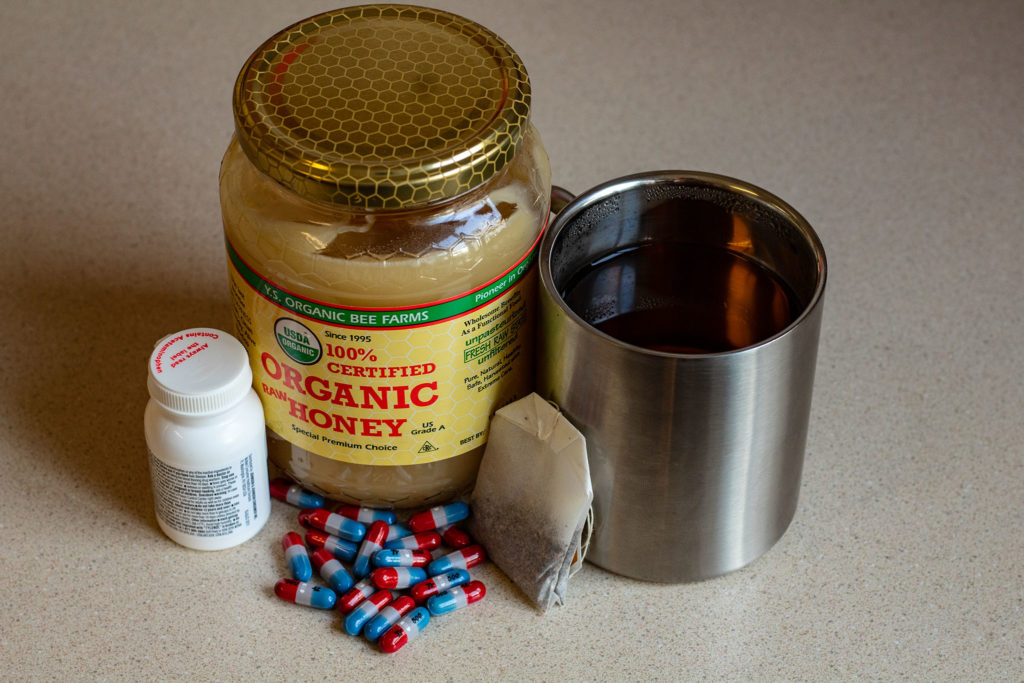Cold and flu season is inevitable on a clustered college campus. Even if all roommates are diligently cleaning the living space and have received the flu vaccine, somehow someone still ends up getting sick.
“The flu is going around,” says one student. Another tells his friend, “I can’t believe he gave me strep.” Around the corner, yet another student complains, “A stomach virus is going around.”
As college students, these are the phrases heard practically every day in the months of September to January. Almost every sickness is spreading during this time, but there are various on-campus resources available to help.
Being sick is never fun, especially as a student with day-to-day responsibilities. When students get sick, not only are they struggling with feeling off-kilter, but they’re also challenged with making it to class, keeping up with classwork, getting enough sleep, and eating healthy on budget. However, Seattle University’s Health and Wellness Crew (HAWC) is here to help students stay healthy in the midst of a germ-filled storm.
HAWC offers cold and flu kits for students who are sick or looking to take preventative measures towards not getting sick. In these kits, students receive tips and tricks on staying healthy, over the counter medicine, Purell hand sanitizing wipes, a mini Kleenex pack, among other items. HAWC also offers Emergen-C dietary supplement and immune support packets for students.
Psychology major and HAWC member Katherine Dickhaus said that HAWC can also offer support with students who are struggling with their academics through their illness.
“Maintaining a presence academically is a really big challenge on campus,” Dickhaus said. “We offer tips and tricks for helping to get in contact with professors, even help write emails asking for extensions or for meeting outside of office hours.”
Peter Hoang is a nursing student and HAWC member who said that HAWC can also provide information on where to get flu shots, aside from the on-campus Student Health Center.
“We can tell people where the closest place to get the flu shot is. So, sometimes students don’t have insurance at SU, but Walgreens and Bartells have flu shots,” Hoang said.
Dickhaus also added that it’s important to get a flu shot early on, too—he said students should schedule an appointment as soon as they’re free.
As a nursing student participating in clinicals with settings that are particularly germy, Madelyn Twight is constantly aware of who and what she is touching.
“Being aware is probably the most important trick to staying healthy. Being aware of who is sick and what they touch, who around you is sick [is important]. You don’t have to isolate yourself, just be aware,” Twight said.
When working, Twight touches things as little as possible and washes her hands consistently.
“If you don’t have to put your hand on a patient, don’t. If they are clearly sick, put a mask on them and just be super aware of what you touch and what can be contaminated,” Twitch said.
This crucial nursing tip can be translated into a healthy habit for someone living in a dorm or on campus surrounded by germs. Twight said she now realizes how many unnecessary things she touched while living in the dorms.
From walking through the front door, to pushing elevator buttons and touching railings, to using door handles and community bathrooms, there are many ways to transfer germs from objects to students’ hands. Cutting back on touching unnecessary objects can really save students from picking up germs and transferring them into their bodies.
Lastly, Twight shared that hand washing with soap and water is super important because our hands carry most of the germs we encounter. But if students can’t immediately wash their hands, using hand sanitizer or Purell is the next best thing.
“Door knobs, railings, the elevator…think about it…when you’re on the street and pressing the walk button, all you have to do is cover your hand to push the button or carry a bottle of Purell when it’s cold and flu season. Just make sure you’re washing as often as possible. Be really aware of what you’re touching because your hands carry 90 percent of it,” Twight said.
Being sick can take a serious toll on a student’s daily and academic life, but they don’t have to go through it alone. Reaching out to friends, professors, and other on campus resources can significantly decrease the time spent being sick and can increase one’s chances of staying healthy next time.
Kaela may be reached at
ktakei@su-spectator.com









